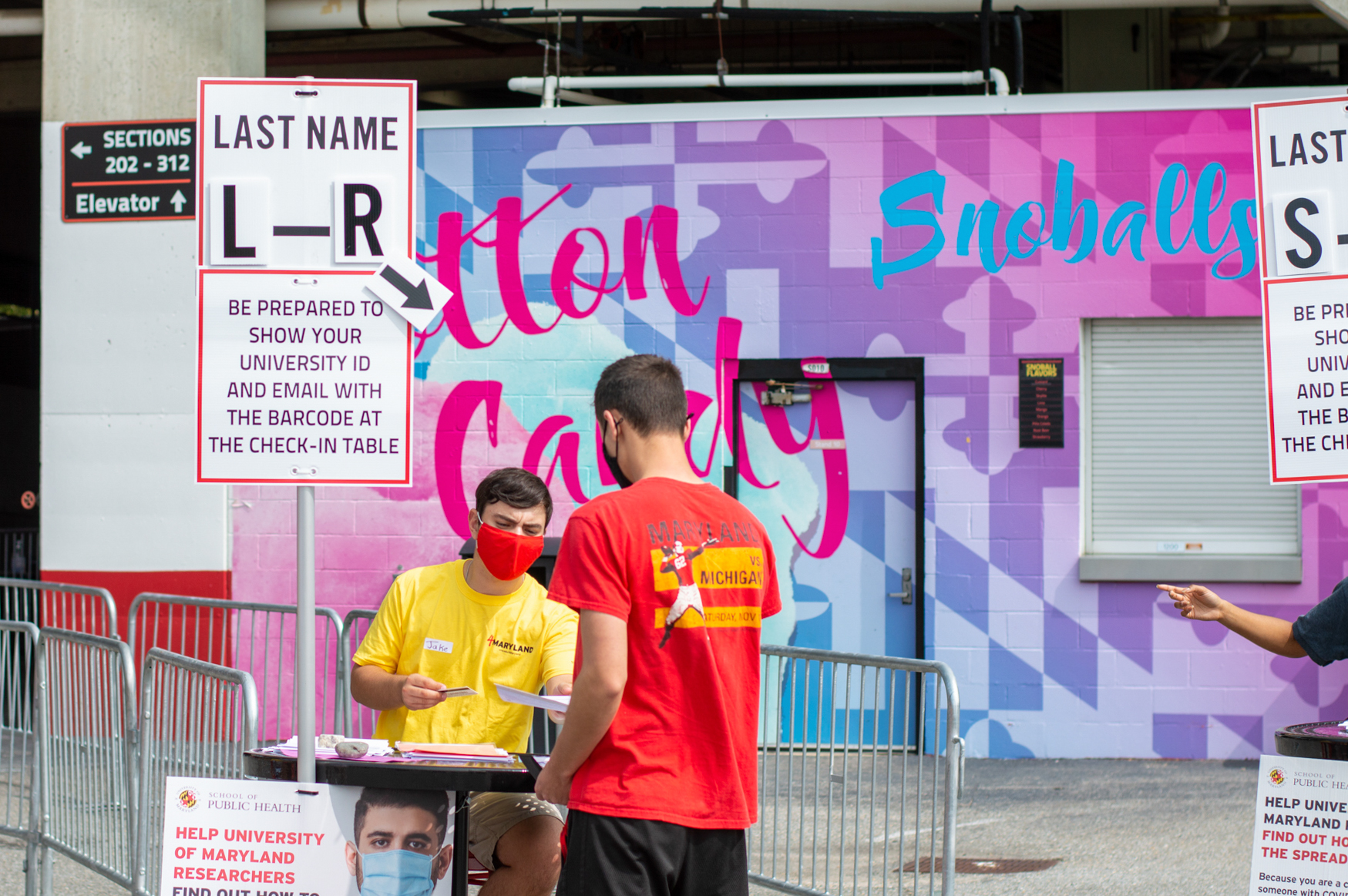Views expressed in opinion columns are the author’s own.
COVID-19 testing has never been good at the University of Maryland. For most of this semester, if you were asymptomatic, you could only get tested on campus on Mondays and Thursdays from 9 a.m. to 3 p.m. and on Tuesdays and Wednesdays from 9 a.m. to 12:30 p.m. As a student who works off campus, sometimes all day, I often had to seek testing elsewhere.
However, limitations on testing have only increased since. About a month ago, the university announced COVID-19 testing will no longer be conducted in Stamp Student Union, meaning the university will not be taking walk-ins at all. Now, students must schedule an appointment with the University Health Center for a PCR test and cross their fingers they are able to get timely results or purchase an at-home rapid testing kit.
This comes at an especially dangerous time with a new variant emerging in the United Kingdom and Japan. Two new Omicron subvariants have also emerged and begun to spread quickly in New York. And this increase in positive overall COVID-19 cases isn’t far away — on campus, we have seen an increase in self-reported positive tests.
Continuing to make testing less accessible to students presents a danger that will only cause the number of positive on-campus cases to spiral without anyone’s knowledge and will only further entrap the student body in the cycle of things getting far worse right after they seem to be getting better. Evidence proves we are nowhere near as out of the woods with COVID-19 as we think, despite wanting to be. It is clear the university should maintain accessible and affordable on-campus COVID-19 testing.
After already having an issue with the COVID-19 dashboard underreporting positive cases and having seen a new COVID-19 wave or variant cause the number of on-campus cases to increase rapidly, the university should know better than to restrict access to testing.
What makes all of this even more troubling is the fact that we’ve seemingly already returned to a state of almost normal. In libraries on campus and other buildings such as gyms, few people wear masks. Social events on campus are also back in full swing. With 98.3 percent of the university student body fully vaccinated — and many of us having been so for almost a year now — a lot of us may forget to get tested frequently or not see the need to unless we were exposed. By restricting testing even further, students will not be able to get tested even when they need or want to take extra precaution.
The university has also had its mask mandate lifted in all places except classrooms, in-patient centers and public transportation since February, and has even discussed an optional mask policy entirely in the fall. Without masks, students may spread the disease unknowingly around the campus community even more easily.
On top of that, with testing so hard to access, students — and the administration — have no way of knowing the situation regarding COVID-19 on campus. With new variants spreading, this knowledge is crucial when it comes to keeping another major spread from happening or in deciding how to adjust COVID-19 policies. By restricting testing so drastically, the university seems to be too focused on resuming pre-pandemic campus life to care about determining what the current reality of COVID-19 is.
We know this approach doesn’t work. This isn’t the first time the university and other institutions have rushed to return to normal when the science shows something different. In fact, it’s been a recurring problem since the beginning of the pandemic. The number of positive cases go down temporarily, and we begin to think we don’t need to worry anymore. And each time, this brief stage of normalcy where we mask less and test less has led to record-breaking positive cases and the reinstatement of COVID-19 precautions — then the cycle begins all over again.
When testing is so limited it’s almost inaccessible, low positivity rates hardly mean anything. Self-reported positive cases are rising, making it clear that now is not the time to lift mask mandates and get rid of accessible, free testing for students. If we want to overcome COVID-19 for good, we must use all resources at our disposal to ensure our campus is safe before we take drastic measures.
Rebecca Scherr is a sophomore English and government and politics major. She can be reached at rsscherr101@gmail.com.



